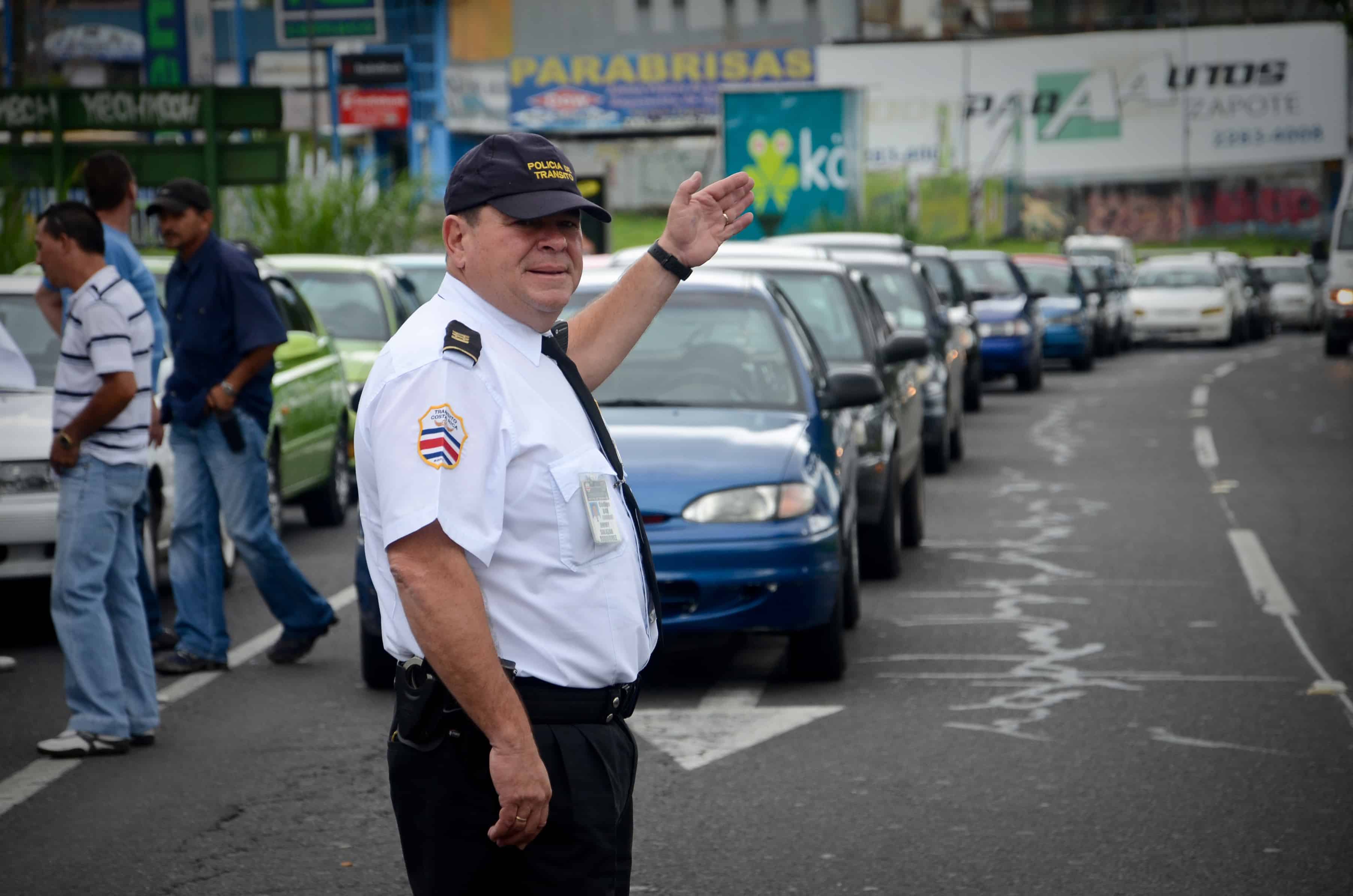After a rough start to Uber operations in Costa Rica over the weekend, President Luis Guillermo Solís’ administration finds itself at loggerheads with the ride-hailing company and with the Traffic Police union over how to enforce the country’s transportation laws.
Hours after Uber service went live in San José Friday afternoon, police impounded two Uber vehicles. Later that same night, vandals smashed the windows of a car that was in Uber service, according to the company. Uber said that those drivers had its full support, legally and financially, according to company spokeswoman Rocío Paniagua.
Sunday, in an interview with Channel 7 TV News, Traffic Police Union President Homer Alfaro accused authorities of unduly pressuring officers to go after Uber drivers at the expense of their other duties. Alfaro said officials were “coercing” traffic cops to go after the app’s drivers. Alfaro told Channel 7 that it would be an “abuse of power” for Traffic Police to interrogate drivers about who was or was not an Uber driver.
Traffic Police Commissioner Mario Calderón denied Alfaro’s allegation in a statement Monday afternoon. Calderón replied that enforcing Costa Rican law on the illegal transport of people was not an abuse of power but rather compliance with the officer’s job description.
“Members of the union, who are traffic officers, have the right to have their own opinion about the legality or not of Uber but they do not have the right to not comply with their duties and disobey orders,” Calderón said.
The police chief said that only two Uber drivers have been fined since the company started operations on Aug. 21. On the other hand, Calderón said 4,260 people have been fined between January and July for unlicensed taxi service.
The Solís administration issued a statement Saturday denying that the government had “declared war” on Uber, as reported by CRHoy.com on Aug. 21. The president did not, however, backtrack on Transport Vice Minister Sebastián Urbina’s statements that the company was providing an illegal service and violators would be fined.
“In Costa Rica the law regarding the transport of people is clear. We regulate it in order to guarantee security for our consumers of public services. And in this case there can be no exceptions,” Solís told reporters on Aug. 21.
Uber Costa Rica has denied that it is a public service, identifying instead as a private club that meets members’ transportation needs.
As the government struggles to implement an enforcement strategy, Uber drivers continue to circulate and the company continues to solicit new drivers. The latest Uber Costa Rica workshop for new drivers was scheduled for 7:30 p.m. at the Hotel Auténtico. Uber spokeswoman Rocío Paniagua previously told The Tico Times that the company would support any drivers fined by police.
Paniagua would not say how many drivers Uber has signed up in Costa Rica but said the company’s goal is to have enough drivers so that an Uber can be available “within 5 minutes for anyone in Costa Rica.”






